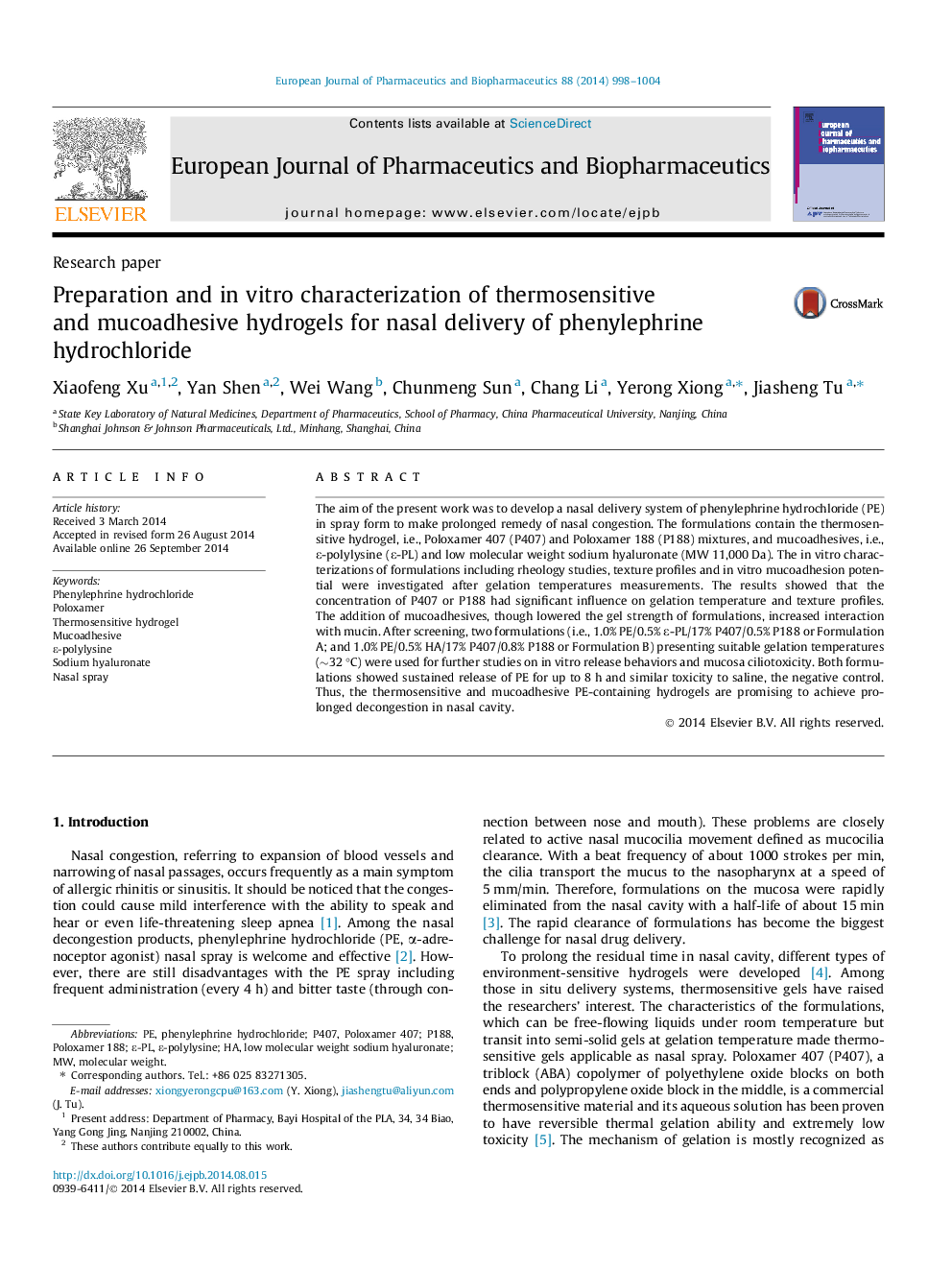| کد مقاله | کد نشریه | سال انتشار | مقاله انگلیسی | نسخه تمام متن |
|---|---|---|---|---|
| 2083537 | 1545337 | 2014 | 7 صفحه PDF | دانلود رایگان |
• Formulations with relatively low poloxamer concentrations are able to gelate sufficiently under nasal temperature.
• We introduce ε-polylysine or low molecular weight sodium hyaluronate as mucoadhesives.
• The shear thinning property of Formulation A and B is preferable for spray dosage form.
• The texture profiles and in vitro mucoadhesive potential are estimated using texture analyzer.
• The addition of ε-polylysine or low molecular weight sodium hyaluronate enhances the affinity of thermosensitive gels to mucin.
The aim of the present work was to develop a nasal delivery system of phenylephrine hydrochloride (PE) in spray form to make prolonged remedy of nasal congestion. The formulations contain the thermosensitive hydrogel, i.e., Poloxamer 407 (P407) and Poloxamer 188 (P188) mixtures, and mucoadhesives, i.e., ε-polylysine (ε-PL) and low molecular weight sodium hyaluronate (MW 11,000 Da). The in vitro characterizations of formulations including rheology studies, texture profiles and in vitro mucoadhesion potential were investigated after gelation temperatures measurements. The results showed that the concentration of P407 or P188 had significant influence on gelation temperature and texture profiles. The addition of mucoadhesives, though lowered the gel strength of formulations, increased interaction with mucin. After screening, two formulations (i.e., 1.0% PE/0.5% ε-PL/17% P407/0.5% P188 or Formulation A; and 1.0% PE/0.5% HA/17% P407/0.8% P188 or Formulation B) presenting suitable gelation temperatures (∼32 °C) were used for further studies on in vitro release behaviors and mucosa ciliotoxicity. Both formulations showed sustained release of PE for up to 8 h and similar toxicity to saline, the negative control. Thus, the thermosensitive and mucoadhesive PE-containing hydrogels are promising to achieve prolonged decongestion in nasal cavity.
Figure optionsDownload high-quality image (55 K)Download as PowerPoint slide
Journal: European Journal of Pharmaceutics and Biopharmaceutics - Volume 88, Issue 3, November 2014, Pages 998–1004
